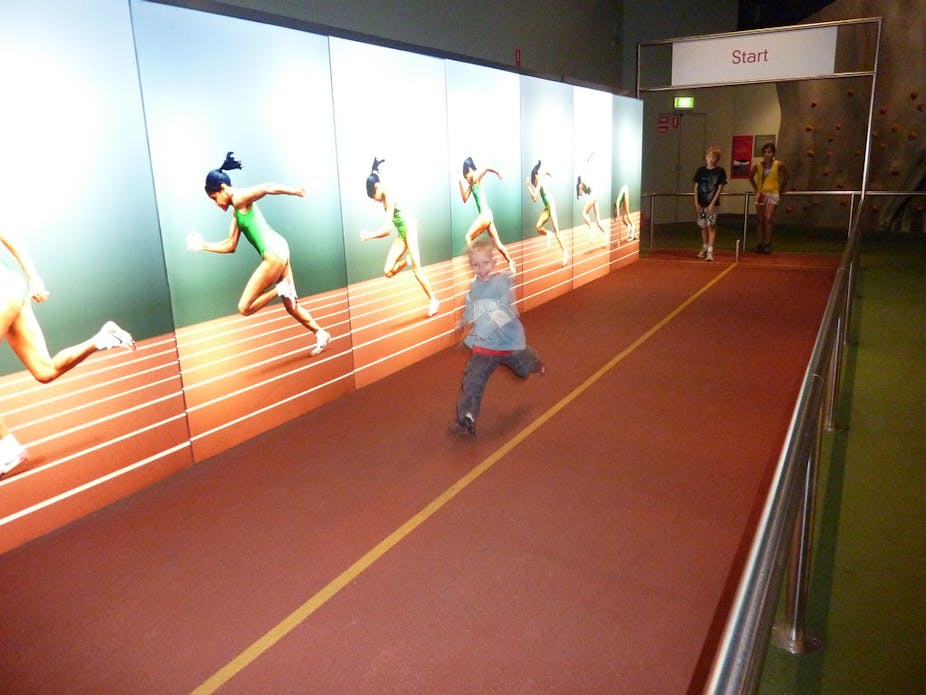Late last year, the media reported the surprising results of an ANU poll. Apparently Australians are “more interested in science than sport”!
But the really interesting news was a small clarification in the rest of the report that was glossed over.
Although Australians are interested in science, the vast majority of them feel they are not very well informed about it. And being informed requires education.
Similar opinions surfaced in a May 2011 UK survey. The majority of respondents agreed that science is “such a big part of our lives that we should all take an interest”, but just over half of them admitted that they weren’t well informed about science.
By contrast, a 2010 European Union survey also found that people were more interested in science than sport; however, a big difference was that a majority of respondents (61% of 31,000 people) thought they were well informed about science.
Evidently, there’s room for improvement in Australia.
There are clearly weak links between science, policy and people, but it’s not always obvious where the black hole for information is.
Humans are an intelligent species and have an unfathomable capacity to learn (although we choose not to sometimes). But to learn, one needs access to information and education.
Education systems have the capacity to address this black hole, but often fall short. The recent government attempt at a new National Science Curriculum was met with concern from educators. Some groups, like the Science Teachers Association of Queensland and the Australian Council of Deans of Science thought it placed too much emphasis on teaching methods and social outcomes of science, rather than scientific concepts themselves, and even contained glaring errors of basic concepts.
Whatever shortcomings the curriculum has, science is still only compulsory until year 10 in Australian schools. Yet it is as important as English and maths to provide a foundation for life. Why don’t we make these subjects the trinity of compulsory education?
We also need to accept that nature, or the environment, is part of science. It is not separate, and it is not a meaningless pseudo-science.
Science is nature and nature is science. All of the laws of nature relate to scientific concepts and all of the branches of science are governed by the laws of nature.
If science was more widely understood, we might not be having such a “heated” climate change debate. Conservation of species or ecosystems might not have to be “sold” to a bribed public, and ecology might be considered a bona fide Science.
Science is fundamental to everything.
If you study the fine arts, science can help explain colour, paint mixing and consistencies, fabric weights and properties or craft material compatibilities.
Science is invaluable to home economics and physical education courses – cooking itself is a science, and knowledge of nutrition and human biology are indispensable for a career in food, fitness or recreation.
Science is an integral part of the manual subjects like agriculture, carpentry or graphic design. Even sociology-based courses can be comprehended in more depth with knowledge of science. People are an animal species; hence, understanding how we function as a species and in relation to the Earth, is essential to understanding psychology, criminal behaviour, history, or demographics.
Perhaps if more politicians understood basic scientific concepts they wouldn’t risk putting voters offside with illogical, unreasonable policies about environmental or scientific issues, and they wouldn’t create education curricula that failed to educate.
If more journalists understood basic science, they might not disseminate science or environment “news” that misinformed or missed the point.
If the general public had more grasp of basic scientific concepts, there might be less conflict and misunderstanding in the public domain over critical environmental issues such as climate change, water resources, renewable energy or conservation plans.
Public understanding of science is imperative to a progressive society.
If we are serious about changing our lifestyles, we need to change how we educate.
This is an edited version of a post at the author’s blog.

